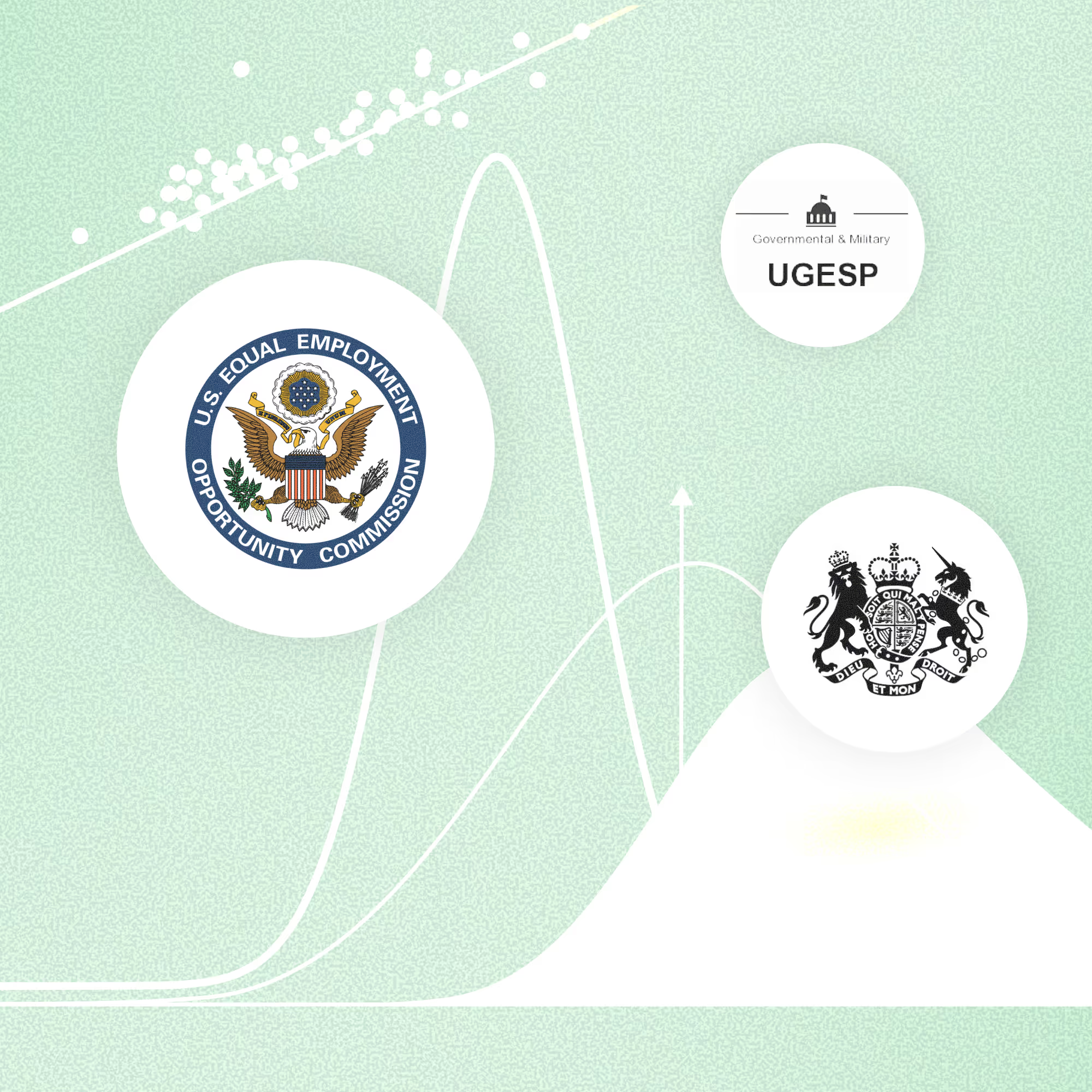The Science that powers fair, skills-first hiring
Intelligent automation and science-backed assessments working together to elevate the pre-hire process with speed, fairness, and consistency. Our models are designed and continuously validated by world-class scientists to guarantee decisions that are reliable, transparent, and equitable.

Meet the people behind the Science

Dr. Aiden Loe
Head of Science
As Head of Science, Aiden leads Maki’s scientific vision, ensuring that every AI-driven assessment is grounded in psychometric rigor, ethical AI principles, and empirical validation.
He oversees the research and development of Maki’s AI assessment models, guiding the intersection of computational psychology, machine learning, and human behavior.
Bridging psychology, data science, and ethical AI to make hiring both scientific and human
His research has been published in leading journals and proceedings, including Nature Scientific Reports, The Lancet (Public Health, Psychiatry), Psychological Medicine, AAAI, IJCAI, and Philosophy and Theory of Artificial Intelligence. With 50+ peer-reviewed papers and 5,000+ citations, his work bridges the gap between academic excellence and real-world application in HR technology.
Former roles
Lead Psychometrician (Cambridge Psychometrics Centre), Visiting Lecturer (University of Cambridge), Academic Collaborator (University of Oxford)
Education
PhD in Psychology, University of Cambridge, MSc in Psychometrics & Social Psychology
Awards
UK Psychometrics Forum Excellence in Psychometrics Award (2017); John B. Carroll Award (2016)
Team members
Behind every assessment, model, and validation loop stands Maki’s dedicated Science Team: together, they design assessments, ensure psychometric rigor, and monitor fairness and validity across every new product release.
The rationale behind Maki’s approach
Recent Research has shown that the most predictive and equitable selection methods are job-specific and behaviorally grounded, such as structured interviews and situational judgement tests
Personality traits alone provide limited predictive validity for overall job performance outcomes
Composite behavioral measures achieve similar validity to standalone ability tests, with much smaller group differences
Real responses to realistic challenges outperform abstract reasoning or trait self-reports
That’s why Maki builds AI-scored, psychometrically robust assessments grounded in real behavior and data, to make hiring decisions that are both predictive and fairer

Skills-first hiring, made immersive
We leverage a combination of human expertise and LLMs to create and evaluate 300+ skills
We assess soft and behavioural skills, cognitive aptitude, coding, job-specific knowledge, and written & spoken language proficiency
Our assessments span multiple formats, including immersive tasks, conversational interactions, situational judgement tests (SJTs), free-text responses (written or spoken), and audio/video questions
We support practical “knock-out” questions such as availability, location, and salary expectations

A 12-step science-backed process
Scoring like human experts: audited, validated, and at global scale
Speech accuracy
Benchmarked using WER, CER, BLEU and multilingual metrics for human-level transcription
Language proficiency
Written & spoken proficiency in 20+ languages, aligned to IELTS/CEFR and calibrated with psychometric models
Pronunciation scoring
Fluency, rhythm, completeness, and clarity evaluated via advanced neural models


We are relentless about raising the quality of our assessments
Our commitment to science does not stop at deployment. Maki’s in-house Science team continuously collects and analyzes performance data to ensure assessments remain accurate, fair, and predictive over time.
We run ongoing psychometric analyses to strengthen reliability, validity, and relevance, including checks on internal consistency, content coverage, fairness metrics, and predictive performance.
This continuous work helps us refine each assessment so it reflects real job success, reduces unwanted bias, and supports confident decisions at scale.
Consistent, transparent, and legally defensible
Structured open-ended answers are scored with BARS (Behaviorally Anchored Rating Scales) for each competency
Ensures consistent, objective, transparent scoring
Complies with employment law standards (UGESP, EEOC, Equality Act)
AI-scored open-ended items are benchmarked against human raters with ICC, ANOVA, Bland–Altman, and Welch methods


Adding new languages in weeks, not months
Double-blind translations
Double-blind translations by certified agencies
Advanced review
Native speaker review & psychometric consistency checks
Fast process
2–4 weeks to add a new language
Multilingual
Already available in 40+ languages

Designed for inclusive hiring from day one
Job-relevant, objective, culturally neutral assessments
Inclusive design: clear instructions, practice opportunities, multiple languages, support for non-native and neurodiverse candidates
Rigorous fairness checks: DIF (item bias) and Adverse Impact (80% rule) at build-time and ongoing
Easy accommodations: flexible timing, alternative formats, simple language, supportive feedback, no proof required
Combining psychometrics & machine-learning evaluations
Every assessment is validated using industry-leading methods, including IRT modeling, reliability checks, and predictive validity studies
AI scoring is benchmarked against expert human ratings to ensure accuracy, fairness, and real-world alignment
Continuous monitoring uses ML techniques such as drift detection, bias analysis, and performance audits to maintain scoring that is scientifically robust and trustworthy

Always-on governance
We evaluate LLMs with a 10-step loop
Transparency supports better decision-making
Hiring decisions carry real consequences. That’s why we design our systems to make scoring criteria, model behavior, and evaluation steps as clear and reviewable as possible, helping organizations understand how results are produced.
Structured, rubric-based scoring using LLMs
Our AI agents follow clearly defined scoring criteria. Every result is grounded in observable features and rubric-based indicators, allowing stakeholders to understand how scores are derived without relying on black-box reasoning.
Scientific rigor, not shortcuts
Developed by psychometricians and validated by independent reviewers, our models comply with international standards for reliability and fairness. We measure validity, bias, and impact, then continuously monitor for drift.
Compliant by default
Fully aligned with the EU AI Act, GDPR, and NYC Local Law 144, our systems are audited to meet the highest global standards for ethical AI in hiringtechtech. Compliance isn’t a checkbox; it’s a competitive advantage.
Externally certified, enterprise-ready
Maki’s infrastructure is ISO 27001 certified, built on Google Cloud Platform with AES-256 encryption, TLS-secured data transmission, and redundant storage in Belgium, France, and Germanytech.
Privacy-first by architecture
Candidates own their data. Maki enforces data minimization and automated deletion policies to honor the right to be forgotten under GDPRtech.
Built-in fairness monitoring
Every assessment undergoes Differential Item Functioning (DIF) and Adverse Impact checks before launch, and remains under continuous observation to ensure equitable outcomes for all groups.


